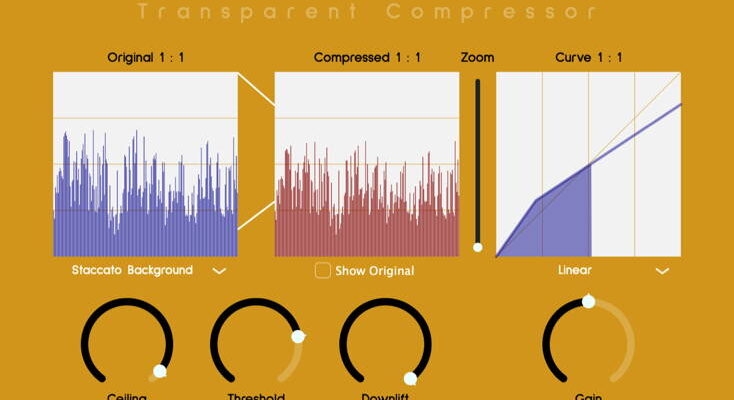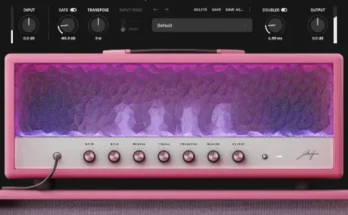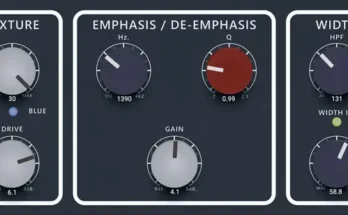Transparent Compressor v2.0.0 WiN
MOCHA | VST3/AAX | 2.5 MB
This plugin takes a modern approach to dynamic range compression, focusing on the compression itself rather than timing. The result is a compressor that is user-friendly and easy to understand. It offers three different mathematical methods for compressing the audio signal – Linear, Quadratic and Bezier – each with the option to expand the softest parts of the signal. For those who find it difficult to perceive compression just by ear, the plugin also includes animated graphics to help visualize the compression process.
Transparent Compressor Flow
Although drawing this graphic in the main plugin window can be challenging, it provides insight into how each curve affects the operation of the Transparent Compressor and, most importantly, the final outcome.
How to use Transparent Compressor
Usually you need to control the dynamic range of an audio track when the loud parts sound too loud or the soft parts sound too soft. By compressing the loudest parts and expanding the softest parts, the whole track should sound more consistent. The typical compressor applies a linear conversion of values in dBs, offering the possibility to change the slope of this line and sometimes the option to soften the change in slope or knee for a soft-knee. Transparent Compressor not only offers the linear conversion as well, but also two extra methods that ensure the softest transition as possible while including an option to have soft level expansion – Downlift – on the same curve.
The method can be switched later on to compare and decide on the one that sounds better with the rest of the song. Proper configuration of the Ceiling, Threshold, and Downlift values is crucial.
Ceiling is the highest possible value – 0 dB on the incoming audio signal – and acts as the upper value of your compressed signal. The Threshold is the lower limit of the compressed signal, and audio levels between Threshold and 0DB will be compressed to values between Threshold and Ceiling. Downlift is an optional expansion of soft parts, but be aware that it also expands the noise floor.
To visualize it, there are two lines connecting the incoming and outgoing signal graphs. Please use the provided graphical interface to modify the values instead of the native one as there is an obvious constraint, Threshold cannot be higher than Ceiling.




